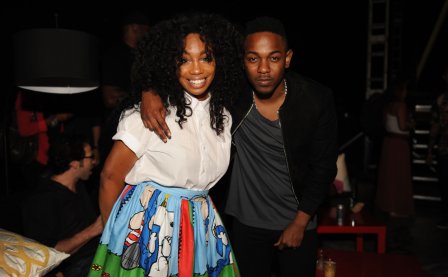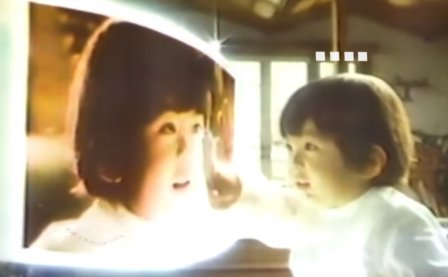You can interpret the opening line of SZA’s new album as both mission statement and preemptive defense. It plays backward first — “dnim fo etats a si ytiralc” — then forward — “clarity is a state of mind” — as if to illustrate its own point.
And it’s true. Have you ever been in a conversation with someone who cuts himself off mid-sentence, only to then reflect on the content of what wasn’t said? Or someone who makes quick associative leaps from thought to thought, vocalizing the end result but skipping over the logical connectors that got her there? Listening to SZA can feel a bit like this. Sometimes we can follow her train of thought, fill in the gaps of what isn’t said, and find a measure of clarity in her lyrics. More often, they remain out of reach — oblique, mysterious, unknown.
SZA (born Solana Rowe) reportedly writes her songs as freestyles — like a sort of automatic writing, dredging up idiosyncrasies and insights from her subconscious. At their best, her lyrics are filled with surreal imagery and striking expression — I’m thinking of “Aftermath” from last year’s S EP, on which she sang: “I apologize for waiting to tell you for so long I am not human/ I am made of bacon, fairy tales, pixie dust, I don’t feel.” And she studs her songs with mundane pop cultural references and observations, as on “Pray,” where she sang “Feeling like Topanga, Patti Mayonnaise/ Kind of average with queen qualities” (a strangely evocative line if you share SZA’s cultural reference points).
Now, on Z — her first release since signing with Top Dawg Entertainment last summer — SZA has tempered her most attention-grabbing lyrical impulses, but her songs remain impressionistic, subjective, and a bit scatterbrained. On the album’s opener, “UR,” Rowe’s writing is clipped and tangential: in the second verse, she follows a line about an overworked, overstressed woman struggling to keep up with her own demands (“Superficial superwoman/ Ain’t you tired of that wind in your face?”) with a sudden remembrance of a lover past (“Your skin tastes like Brussels sprouts, I’d swear/ Can’t seem to remember your face”). Elsewhere, she misuses language in an odd, playful way, as though it were the result of impish synaptic misfires. On the hook of “Childs Play,” for example, she ruminates on how things “used to was,” and on “Warm Winds” she wonders “what’s happening to we?”
When everything comes together, Z reaches some rather lofty peaks. On the third track, “Julia,” SZA paints a bittersweet portrait of a relationship as uphill battle. “How could you forget that I’m the one who forgot all your mistakes,” she asks. On the chorus, she sounds a bit like Björk — a professed hero of hers — when she achingly belts out: “Didn’t I try ‘cause you wanted more?” “Julia’s” instrumental, by the often-excellent Felix Snow, is a bright, glassy throwback to 1980s Madonna or Fleetwood Mac’s Tango in the Night (an album Snow and SZA have repurposed in the past). On “Childs Play” — built on a downtempo sample of XXYYXX’s “About You” — SZA engages her schooldays Barbie dolls and video games for an extended metaphor, and is complemented perfectly by the low-key verbal acrobatics and soulful tone of Chance The Rapper.
Z stumbles in its second half, however. “Sweet November’s” Marvin Gaye instrumental doesn’t quite fit among the more modern, electronic productions found on the rest of the album, and SZA’s most compelling characteristics — her quirkiness, her seeming spontaneity — drown in the grand, overwrought production work of Emile Haynie and DJ Dahi.
After first listening to S last year, I was left with a great curiosity about the mind that had created it. It was by no means perfect, but its various components — the lyrics, the beats, the jarring samples from Rosemary’s Baby and Eartha Kitt — combined into something refreshingly unique. Z is a more diffuse effort covering a wider range of ground. SZA remains a captivating, interesting singer, but the focused singularity that made S such a rewarding listen is largely absent here. SZA is likely still finding her voice and figuring out what kind of instrumentals work for her best. So Z sounds to me like a transition, a step backward that could very well be followed by two forward.
More about: SZA




